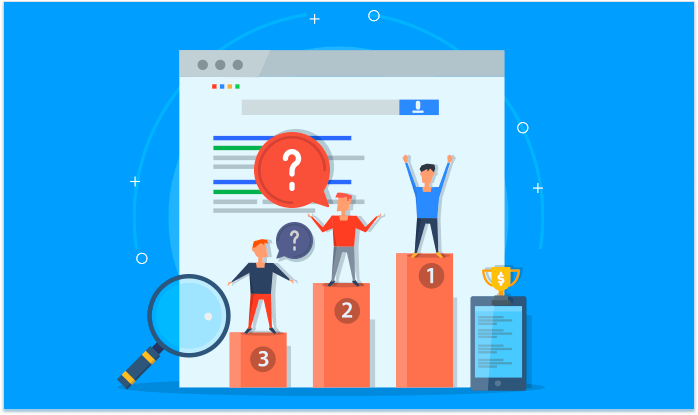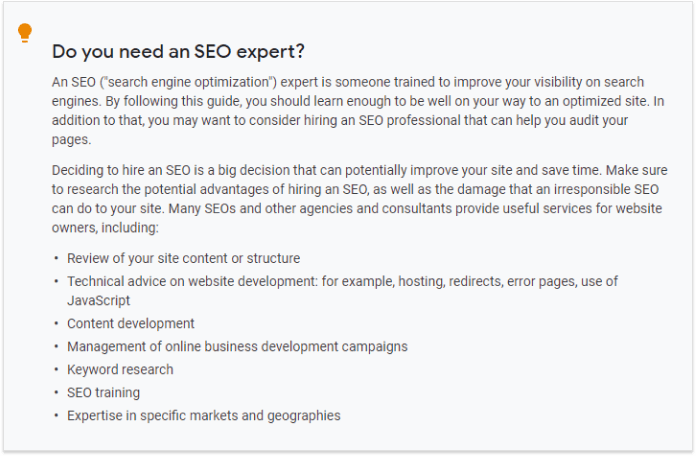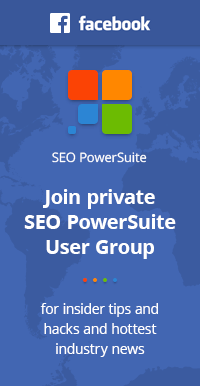It's been a few days since you've installed SEO PowerSuite and we hope you're enjoying your experience with the software so far.
At this stage, you might be having more questions than answers, and we'd be glad to help you sort the things out with SEO.
In this article, we'll answer your most burning questions about SEO, its benefits and the major one — is SEO the right thing for your business, and if yes, what results can you achieve?
1. Does my site actually need SEO?
It does indeed.
Today's market is not what it used to be in the pre-Internet era. Your customers don't use a phonebook anymore to find a product or service they need. They visit Google and search for it online.
Your site needs SEO to be found. Plain and simple.
However, not every business can benefit from SEO.
Before you start investing your time, it pays to check that your business doesn't fall into any category that makes it difficult to leverage SEO.
Here's when it's not the best option:
You're promoting an innovative product or service no one is searching for
Innovations reverse things a bit. They create supply before any demand appears on the horizon.
The fact that no one is yet aware of a completely new product or service means that web users are unlikely to search for it online. Thus, no matter how high you rank, your traffic flow is unlikely to see any ups.
For instance, there's a ground-breaking service we found that lets you get your website UX tested by someone who is far from being a web pro — a mother in her 60s.
Standing ovation for the idea behind the service, but a quick check in Rank Tracker reveals that the product defining keyword's search volume is zero.
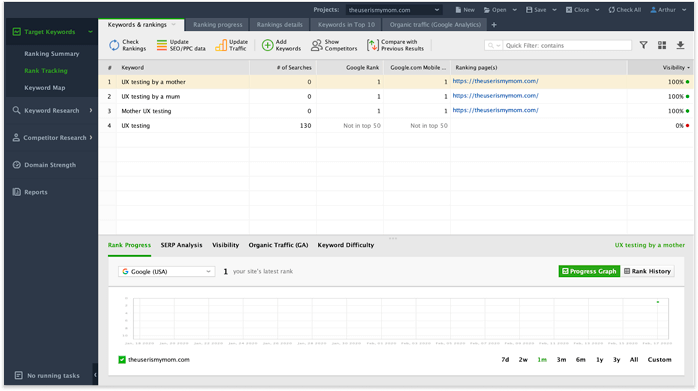
How did that happen? The service is innovative, so no one is looking for it simply because no one knows that a service like this one exists.
You're promoting one-time offerings
Daily one-time deals are as hard to catch as they are to be promoted by means of SEO.
Normally, the product pages on such websites exist online from one to two days. So even if you're rocket-fast, it will be a miracle if they are indexed by Google before they vanish.
However, you can go another way around and focus on promoting the whole website for such keywords as "daily deals" or "one-time deals" rather than product pages.
Keep in mind that you're bound to face some serious competition when taking your website to page one for these keywords.
You're short of time
SEO is not that complex as it may sound. If you're ready to spend at least 30 minutes a day, it won't take long to see the first results of your work.
However, if you don't have a chance to carve out even half an hour a day, it will be challenging to achieve any success.
But what makes SEO a must and how can it help your business grow? Let's check it below!
2. How can SEO help my business grow?

SEO is made up of multiple different elements and knowing what they are and how they work is key to understanding why SEO is so important.
Your strategy will consist of multiple steady steps as well, and each of the actions you undertake will consequently resonate in how search engines treat your website and webpages.
Here's what your efforts can transform into if you do proper SEO:
More visitors via organic search
Every second, web users submit over 40,000 search queries on Google. At least a few thousands of those can be related to your product or service.
Making it to the top of the search engine results page means direct exposure to thousands of searchers and more prospects visiting your website.
Plus, the organic traffic you get won't cease. Even when you're sleeping.
Here at SEO PowerSuite, we see around 40% of our visitors coming from organic search. That's almost half of all traffic we get and the best part is that this doesn't require huge investments, which makes SEO one of the most effective marketing solutions.
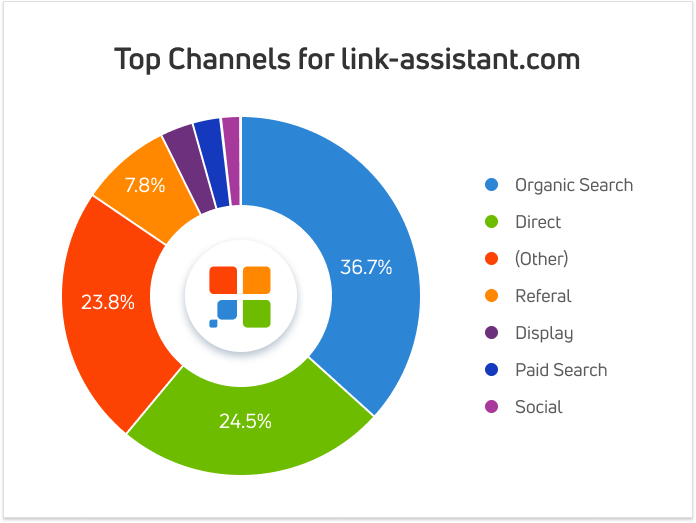
More local traffic (if you run local business)
With the growing domination of mobile traffic, local SEO becomes a critical part of any SEO strategy for a local business.
What is hiding behind local SEO?
Basically, it's when a user searches for a product or service on the web, and Google first checks this user's location and only then provides the results relevant for their state, city, or street address. The table with local businesses appears as a zero search result, above any other results on the SERP.
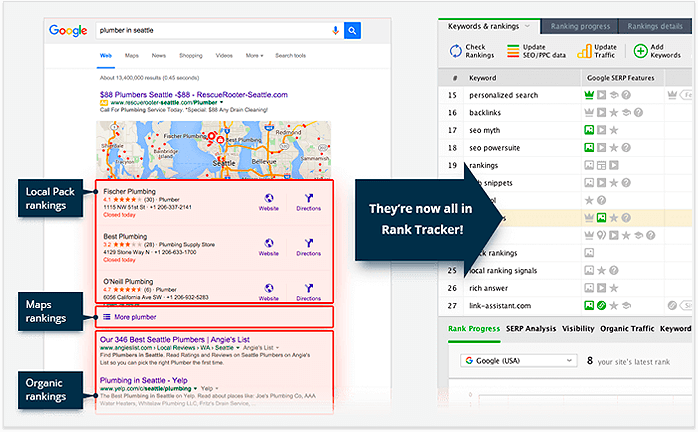
If you run a local store or provide services within a specific area, you might definitely want to target the corresponding audience and occupy that sweet spot on Google.
Here're some convincing statistics:
- 82% of smartphone shoppers conduct ‘near me' searches. (Search Engine Land, 2018)
- 28% of searches for something nearby result in a purchase. (Google, 2016)
- 50% of mobile users visit stores within one day after a local search. (Google, 2018)
- 72% of consumers who did a local search visited a store within five miles. (Wordstream, 2016)
So once you succeed with local SEO, more prospects will see your website on Google and visit it next time they type in, say, "Italian restaurant" close to your business' location. Of course, if your business is actually an Italian restaurant.
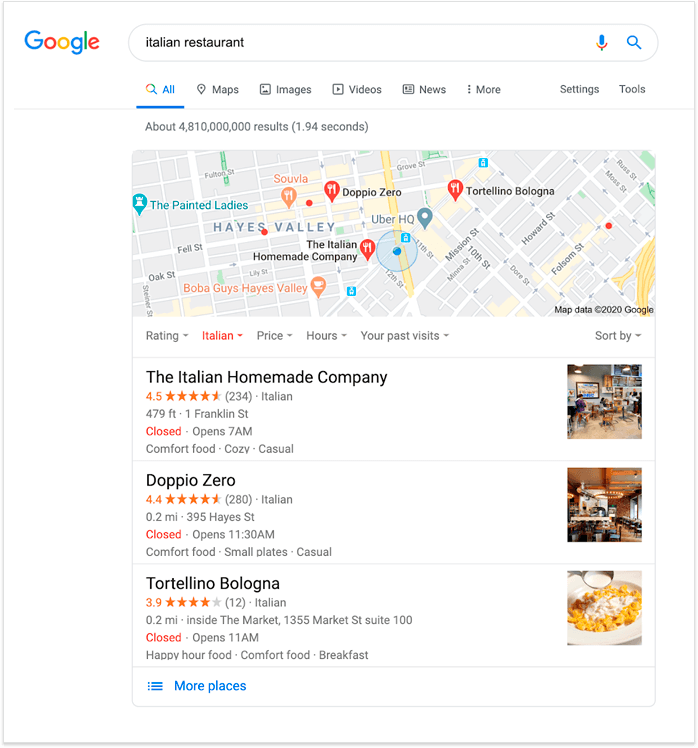
Smoother, faster and user-friendlier site
Long gone are the days when Google was just about finding websites that match a user's search query. Today, the first page of a SERP shows you the websites that match your query and at the same time boast:
- excellent user experience
- fast loading speed
- intuitive navigation
- Mobile-friendliness
Google perfectly understands whether a website is user-friendly or not. As well as web users — 88% of them will never return to a website after a bad experience.
The great thing about SEO is that by optimizing your website for search engines, you're seamlessly adding to its user experience perfection.
Better conversion rates
With an effective content strategy, you're focusing on creating content that hits right into your prospects' pain points.
With proper technical SEO, you're making sure that your prospects get excellent experience after they clicked and visited your website.
The combination of those two ingredients guarantees that users get what they intentionally searched for and that nothing, say, a slow loading time of your webpage, will make them leave your site before taking any action.
Brand awareness

Your brand is a valuable asset and increasing the awareness around it is the cornerstone of your marketing efforts.
The great news is that you already have a website and the Internet itself is a perfect place to spread brand awareness.
With higher rankings on Google, more users will see your brand when they search for something online and this, in turn, will help build trust and credibility around your business.
Weaving the net of backlinks pointing to your website from here and there will also increase the recognition of your brand.
Bypassed competitors

Businesses don't live in a vacuum and on a daily basis, you have to be two steps ahead of your competition.
With the help of SEO, you'll be able to conduct proper competitor research and learn what keywords helped your competitors drive more traffic, where they managed to get backlinks from and a ton of other useful insights.
All that will be left for you to do is to analyze the collected data and adjust your SEO strategy so that it's in line with what made your competitors rank higher.
3. Will my website's SEO be better off with agency?
In some cases, delegating your website's optimization to an SEO specialist or agency can be an option if:
a) You have enough funds to hire a high-ranking agency or consultant
b) You know what you want and can put it together into the guidelines for your future consultant
But in fact, small businesses with a limited budget often hire a low-quality SEO specialist. In 98% of cases, this ends up worse than if they didn't hire anyone at all. In some cases, poor practices can even lead to a Google penalty and complete loss of your website's visibility.
So what about the costs? Below, you'll find average fees professional agencies charge for various SEO services.
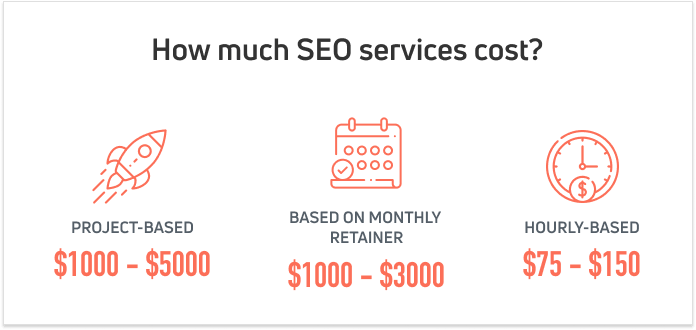
If you're interested in improving your website's SEO and can't afford a professional, don't fret. It's possible to get started with SEO yourself. And we'll definitely help!
What's more, if Google themselves believe that you can comfortably do SEO on your own, then why doubt yourself?
4. Do I need tools to actually do SEO?
It's like asking "can I do laundry without a laundry machine". Possible but extremely tedious, right?
With SEO things are the same. You can do it manually, but it will take you ages to collect all the profitable keywords, audit your website, analyze your competitors and so forth.
With professional SEO tools, you get a rich feature set to automate your SEO tasks and save time to work on more serious tasks.
5. When does SEO bring first results?
There's a wide misconception that you will have to spend ages, if not decades, to see the first results of your hard SEO work.
In actual practice, SEO PowerSuite customers, by and large, saw increased traffic from search engines to their websites in just 30 days.
If you want to replicate their success, all you have to do is dedicate just 30 minutes a day to your website's SEO.
6. Which is better: SEO or Google Ads?
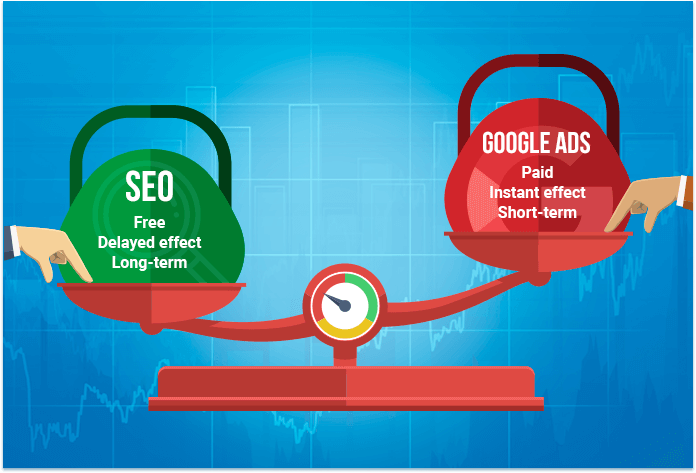
SEO and Google Ads are two different entities. Both can complement each other and work great together.
Ad results normally appear at the top of the SERP, right above organic results.
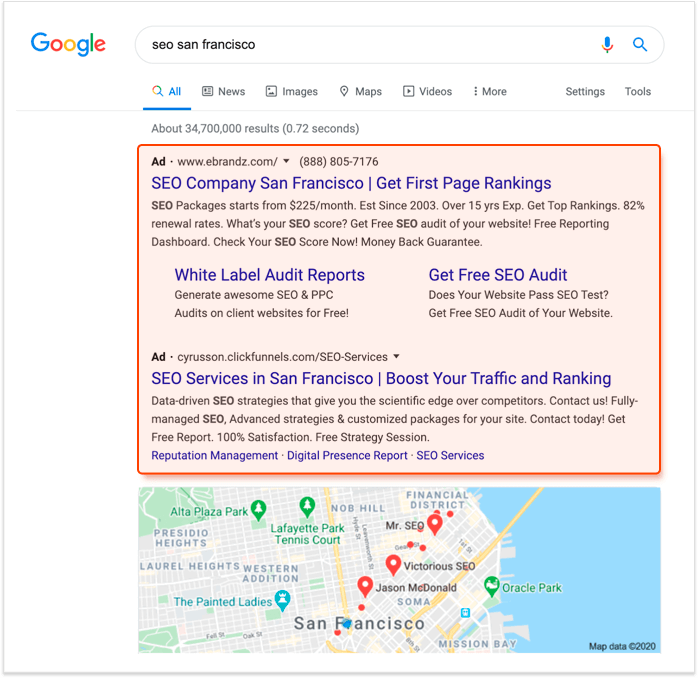
You might suggest it's a coveted spot but HubSpot's research reveals that 70-80% of web users would prefer to ignore paid ads and focus on organic results only. If an ad blocker is enabled, then no ad will be shown at all.
When it comes to cost-effectiveness, SEO is the winner, it's free. With Google Ads, you pay every time someone clicks on your ad so you will have to spend a portion of your marketing budget to get the traffic you want.
Here, all depends on the keywords you use in your ads — often, advertising for highly competitive keywords can cost you a fortune. Just check the screenshot below.
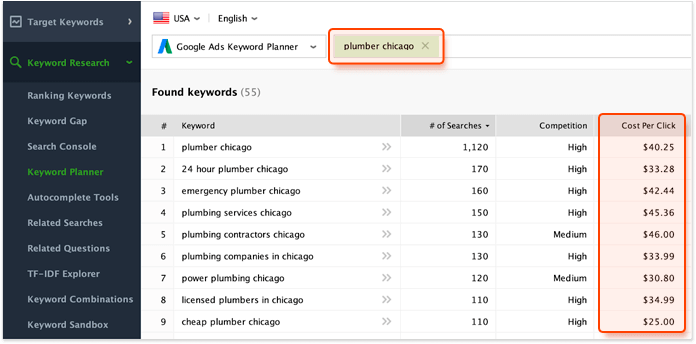
The good news is that Google Ads works almost instantaneously, while for an SEO campaign it will take some time to produce results. But those results are always long-term as compared to the short inflow from paid ads.
Ads work great in many cases, but the best practice is to start with SEO, at least a technical part of it. Having an ad set up without ensuring that your website works properly can turn very nasty. Namely, you'll see visitors but not conversions.
7. Is SEO cost-effective?
The main resource in SEO is not your money, it's your time and unstoppable desire to learn something new every day.
And even if you spend a penny on SEO, this will be an investment. Investment in your business' future success.
Ranking on Google's first page for the keywords searched by the users of your target market in most cases leads to increased traffic and thus sales.
Provided that the achieved results will persist and are long-term, SEO is extremely cost-effective.
Just check the graph below.
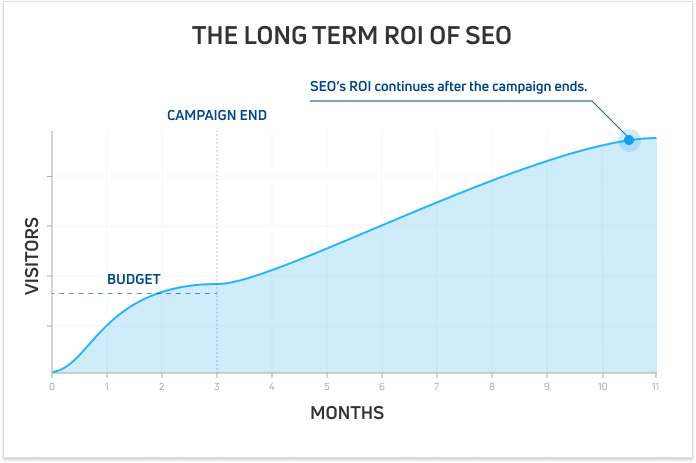
8. Will your software make my website rank high?
The truth is that there're no tools developed yet that will make your website rank high.
In the first place, SEO tools are designed to help you with research and collecting actionable data. Then it all depends on your SEO strategy and the willingness to learn and invest your time in applying your knowledge.
That's you who'll make your website rank high, and that's us who'll make everything that we can to educate and steer you on the right course. And that's the software that'll be your means of achieving SEO success.
9. What parts of SEO should I focus on first?
With SEO being a multifaceted science, you can't just prioritize specific parts of it and omit the others.
Just as you've learned it previously in our Quick Start Guide, you'll have to work on keywords, on-page SEO, backlinks and outreach.
Besides, a consistent workflow is what makes your SEO strategy winning. If you haven't structured yours yet, check this SEO workflow for an optimal SEO strategy.
Before you go...
We hope we addressed your most burning questions in this article. If you have more questions to ask, please feel free to leave them in the comments section below.
You'll also receive more educational materials from us tomorrow, so if you haven't done so yet, make sure to add us to your contacts in your email client.
